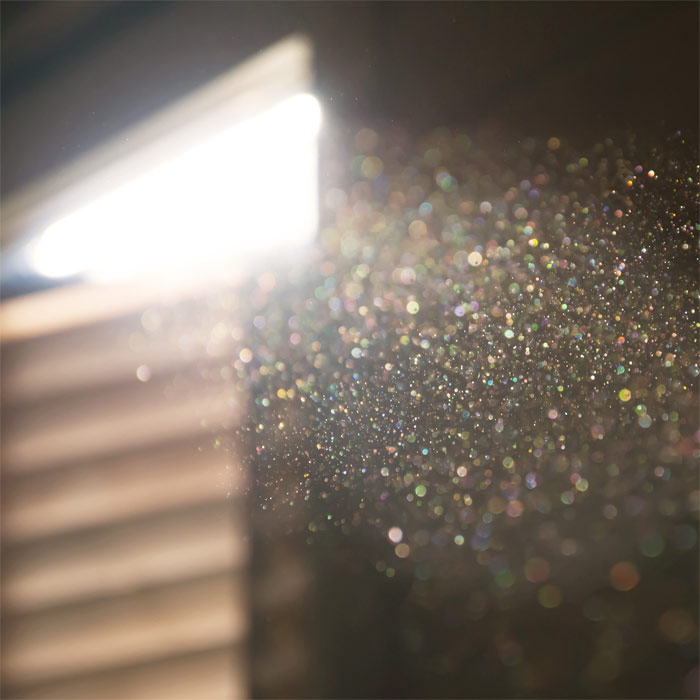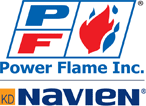
As temperatures drop and we spend more time cooped up indoors, issues like stuffy, stale air, lingering odors, dust buildup, and elevated indoor pollution become more apparent. To combat poor indoor air quality all season long, many homeowners are installing whole house air purification systems. This technology filters and circulates cleaner, fresher air throughout your entire home for healthier living when you need it most.
In this blog, we'll look at why your indoor air can suffer more in winter and how a whole house air purification system offers an impactful solution. We'll overview the types of contaminants these systems remove from the air and benefits for your home and health. We'll also provide tips for choosing the right size and type of air purifier for your needs. Read on to learn why a whole house air purification system can vastly improve the air you and your family breathe this winter.
The Causes of Stale Winter Air
Why does indoor air often seem stuffier and more polluted in the colder months? A few key factors come into play. First, when it's cold outside, we're less likely to open windows or doors to refresh the air. We run the heater more often, which dries the air. Doors and windows stay shut tight, trapping dust, odors, chemicals, and contaminants inside.
Low humidity allows dust to circulate more. Meanwhile, mold and pests seek warm shelter in your home over the winter. Holiday cooking, fireplaces, and candles also release particles and fumes indoors. The tighter home sealing conserves energy but also concentrates all those air pollutants if not properly filtered and refreshed. Stuffy winter air causes discomfort and health risks.
Extended Exposure to Indoor Pollution Takes a Toll
Studies by environmental health groups have shown that wintertime traps people in more tightly sealed, less ventilated spaces where they're exposed to higher levels of indoor air pollution long term. The impacts accumulate over hours, days and months stuck inside breathing unhealthy air. Effects range from irritated eyes, throat and lungs to nausea, dizziness, fatigue and mental fog. Headaches, allergies and respiratory illness also become more prevalent.
Poor indoor air quality has especially detrimental effects on children, seniors, those with respiratory conditions, and pets in the home full-time. Given we spend most of our time inside during winter, purifying that air we breathe makes every minute healthier and more enjoyable. The difference an effective whole house air purification system makes is truly transformative.
Benefits of Whole House Air Purification System
Here's where installing a whole house air purification system can transform the air in your indoor living spaces. These systems are installed with your home's HVAC system to filter and purify the air throughout your ductwork. As contaminated air cycles through the return vents, advanced filtration captures dust, pollen, smoke, odors, VOCs, bacteria, allergens, and other pollutants before returning fresh, clean air through the supply vents.
There are numerous advantages that whole house air purification systems have over portable room air cleaners or inferior filters:
- Fresher air - Stale odors and contaminants are reduced in all living spaces.
- Reduced allergies - Filters remove airborne allergens for less sneezing and congestion.
- Lower dusting/cleaning - Airborne dust is captured before it settles on surfaces.
- Neutralizes odors - Cook, smoke, pet, and VOC odors are reduced.
- Fewer airborne illness risks - Germs and viruses circulate less throughout the home.
- Improved HVAC performance - Cleaner air enhances heating/cooling equipment efficiency.
- Healthier breathing - Reduces irritation from smog, chemicals, smoke, and fumes.
- Whole home coverage - Air in every room gets filtered, not just near stand-alone units.
- You and your family can breathe much cleaner air without even thinking about it. - Whole house systems provide comprehensive air purification 24/7 year-round.
How Do They Work? Types of Whole House Air Cleaners
Several types of whole house air purification systems are available, each using different methods to clean the air.
HEPA Air Filters
Similar to hospital-grade filters, HEPA (high-efficiency particulate air) HVAC filters capture tiny particles like dust, pet dander, pollen, and smoke down to 0.3 microns in size. This includes mold spores and bacteria. While effective at trapping particulates, most HEPA filters do little for gaseous pollutants.
Activated Carbon Systems
"Adsorbent" filters use activated carbon/charcoal to chemically attract and neutralize odors, gases, VOCs (volatile organic compounds), and fumes passing through the HVAC system. This reduces smoke, chemical smells, and other molecular contaminants. However, carbon filters do not trap particulates.
Photocatalytic Oxidation (PCO)
PCO air purifiers use UV light and a titanium dioxide catalyst that creates an advanced oxidation reaction. This process breaks down microbial contaminants, VOCs, odors, and other organic pollution at the molecular level into harmless compounds. PCO offers thorough whole house air purification.
Which Type of Air Purification System Is Best?
Combining multiple technologies like HEPA filtration, activated carbon, and photocatalytic oxidation together into one system ensures the broadest spectrum of air contaminants are removed - particles, gases, VOCs, bacteria, viruses, odors, smoke, etc. Look for systems verified by testing agencies to remove the widest array of indoor pollutants and have long filter lifespans. Adding germicidal UV lamps also kills airborne microbes.
Given the complexity of integrating these systems with your existing HVAC ductwork and controls, professional installation is strongly advised. This ensures the system maximizes air purification while maintaining proper air flow and equipment efficiency. Experienced contractors can advise the appropriately sized system and customize the installation for your home. They can also assist with any building permits and rebate paperwork for upgrades.
In order for maximum indoor air filtration, the whole house air purification system must be properly sized for your home's square footage and HVAC capacity. Oversized systems waste energy trying to push too much air. Undersized systems can't provide enough air changes per hour to properly clean the air.
When installing a system, a professional will calculate the optimal airflow rating based on your home size, ductwork setup, and HVAC blower capacity. Customizable modular systems are available to tailor the unit perfectly to your space for ideal air purification results.
While whole house air cleaners require less maintenance than portable units, filters do need periodic replacement and the systems should be checked annually. Reputable manufacturers provide replacement filters by mail. Contractors can replace filters and confirm systems are working properly. Some air purifiers feature app connectivity that alerts your phone when maintenance is needed.
Additional Ways to Improve Indoor Winter Air
While whole house air cleaners do the heavy lifting, you can supplement their effectiveness with a few added tactics:
- Open blinds and curtains to allow warm sunlight in to naturally sanitize and freshen indoor air.
- Periodically air out rooms by opening doors and windows briefly when weather permits.
- Use exhaust fans when cooking, cleaning, or bathing to remove fumes, steam and humidity.
- Avoid excessive clutter that collects dust. Clean frequently to remove allergens.
- Check attics, crawlspaces, and basements for any moisture or pests that contaminate indoor air.
- Consider adding ventilating skylights or HRV systems to replenish fresh outdoor air.
- Run ceiling fans to circulate air upward and enhance filtration.
- Use healthy cleaning products to avoid introducing harsh chemical fumes.
- With the combination of upgraded HVAC air purification plus smart supplemental practices, you can breathe measurably cleaner air all winter long in your home.
Take Control of Your Indoor Winter Environment
In summary, stale irritating indoor air that accumulates more dust, fumes, allergens and pollution is an inevitable fact during winter months. Rather than tolerate the stuffy stagnant air, be proactive. Have a highly engineered whole house air purification system installed to filter away contaminants and keep the air fresh 24/7.
Combining advanced HEPA particulate filtration, activated carbon odor/gas removal, and photocatalytic oxidation air purification provides the most complete air cleaning solution. Notice how much better you'll breathe in every corner of your home without constant dust and allergens plaguing the indoor environment. By investing in professionally installed and maintained whole house air filtration, you can confidently enjoy purified air and a healthier home all season long.


